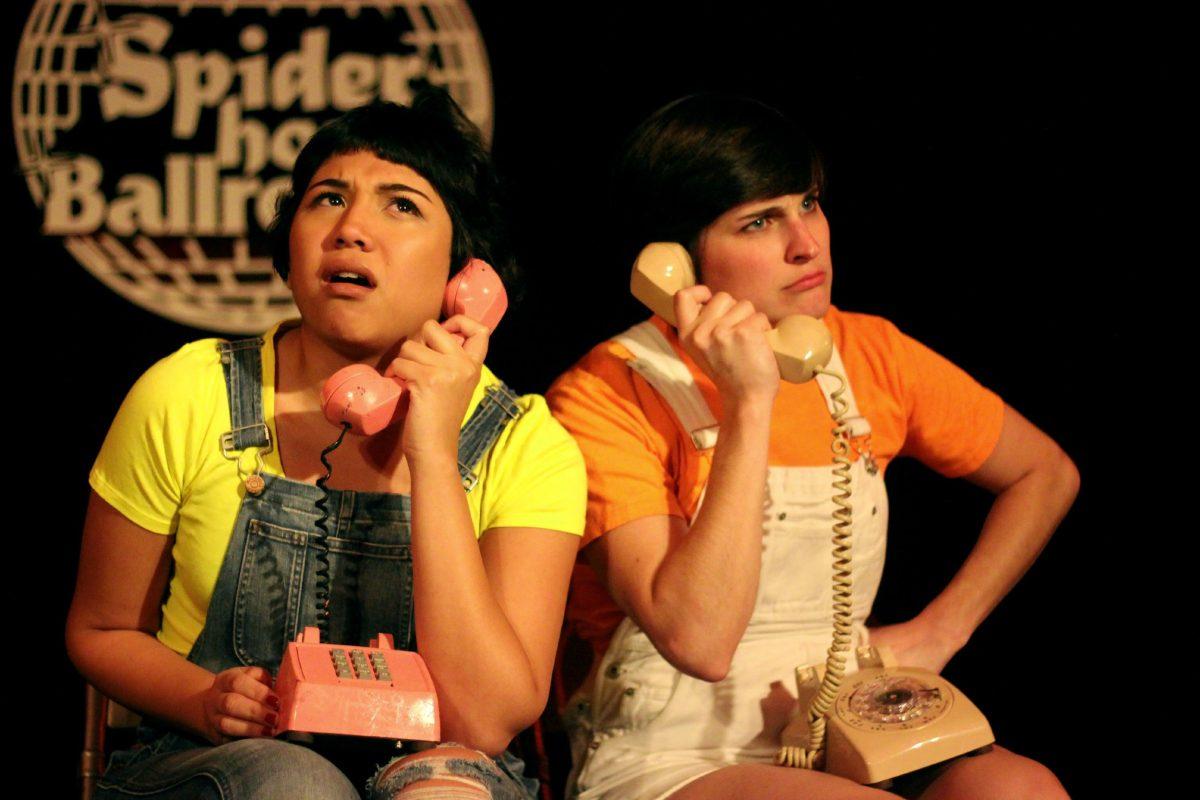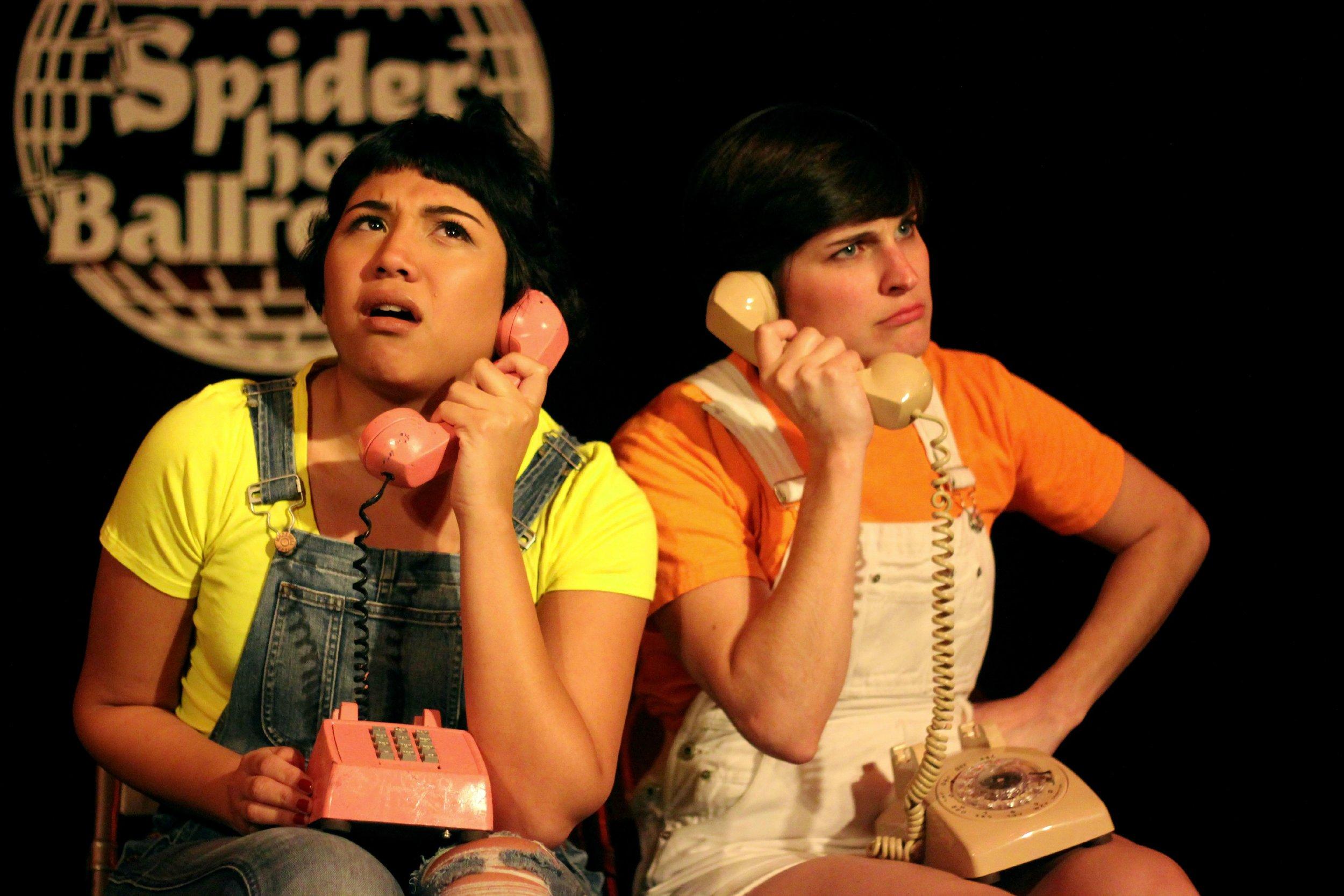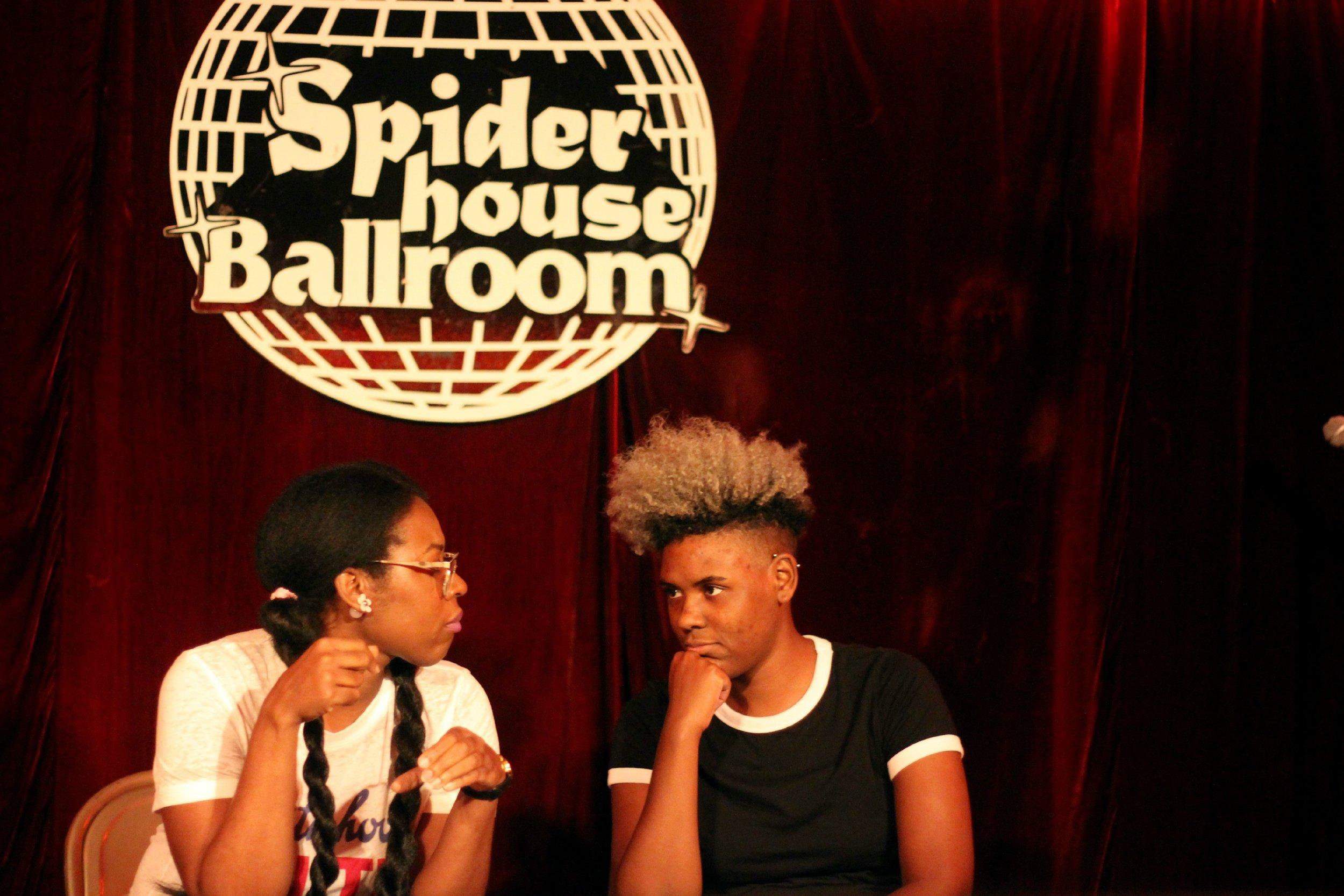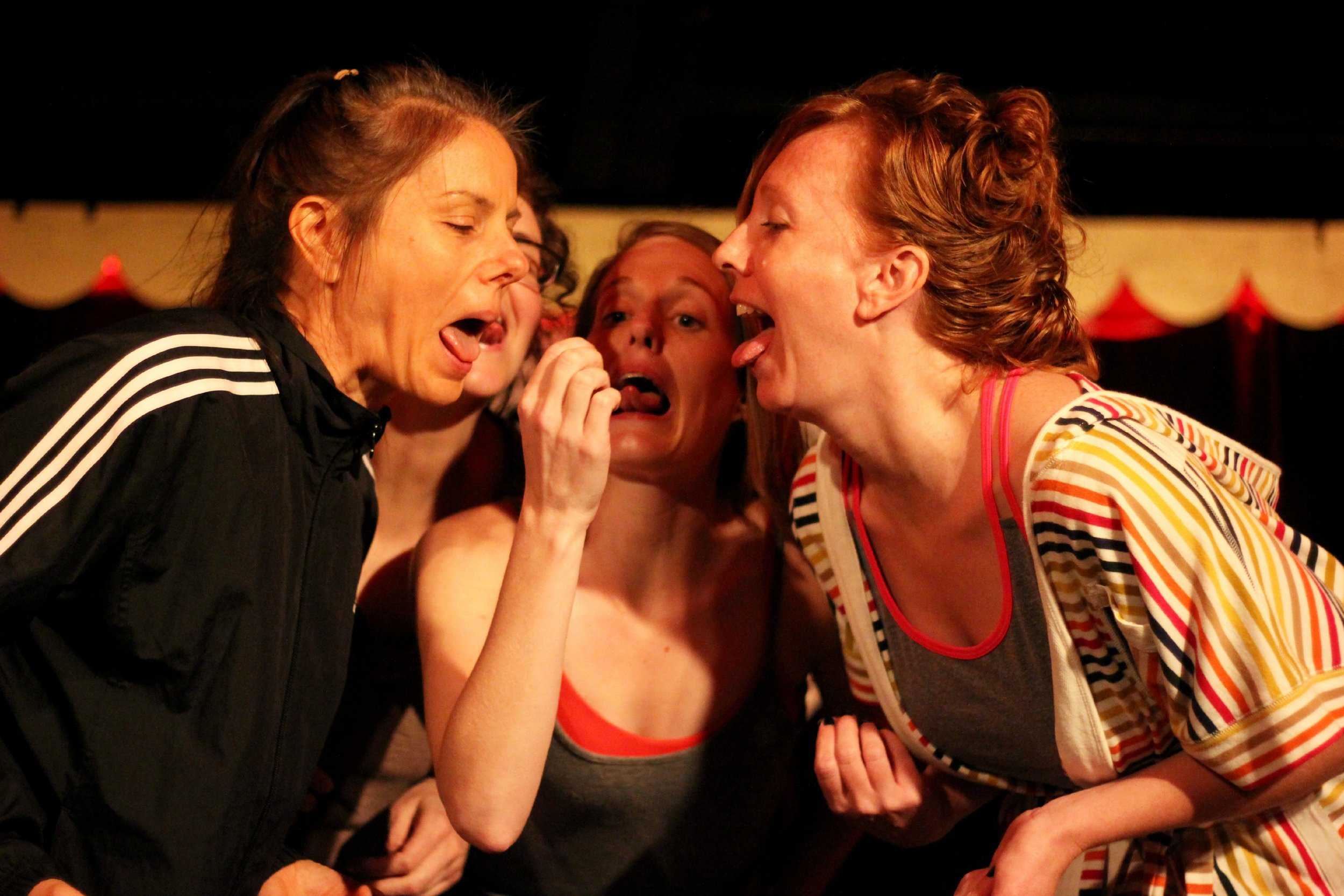Andie Flores and Chelsea Bunn from the comedy troupe, Doper Than Dope, perform their skit, Olsen and Olsen Mystery Agency.
A trapeze class, a photography lesson, a deal for two hours of mini-golf — Kim Lowery’s husband sent her Groupon after Groupon after moving to Austin four years ago. She didn’t really take notice until he sent her a picture of a poster hanging in his office break room: “free improv classes, first Monday of every month.” By the end of her first class, she had already fallen in love with improv.
Story by Sophie Lidji
Photos by Brittany Mendez
Lowery is one of four producers of BettyFest, an all-female comedy festival that was held at Spider House Ballroom on October 14. Female troupe Patio Talk first started the festival, which is now in its third year. According to the mission statement, the festival “aims to provide a safe space for sisters in comedy to perform without limitations” and “gain the confidence to grow as inspiring leaders in comedy.”
In the dimly-lit ballroom, nearly twenty different comedy troupes gave endless laughs to a packed crowd. Many troupes even formed specifically to perform at the festival.
Xaria Coleman and Ronnita Miller perform improv for the crowd.
It’s not uncommon for female comedians to have dealt with adversity and disrespect in their largely white male-dominated field. From a lack of adequate representation to the claim that women “aren’t funny,” women interested in comedy may feel discouraged to even start. “It took me a little while to get over the idea that I was in a female troupe or that I was a female comedian versus now feeling like I want to be a human who does comedy and that’s it,” Lowery says.
Lowery adds that at ColdTowne Theater, which sponsors BettyFest, the climate has changed dramatically in the past year. She says she notices positive action shaping an environment that is more inclusive to women and people of color in Austin comedy theaters. The sizable audience made it clear that Austin isn’t afraid of funny women.
Often overlooked by comedy capitals like New York and Los Angeles, Austin has its merits when it comes to the comedy scene. Lowery says she appreciates that the city’s comedians aren’t trying to be discovered during every performance and are doing what they love just because they love it. “You have to almost depend on yourself to put pressure on yourself, but there’s a freedom in that,” Lowery says. “There’s a strong creative outlet in Austin and the reason isn’t about fame, at least not right away.”
Tauri Laws-Phillips, a member of featured troupe Damn Gina, says BettyFest is a celebration of girls. “It’s all about inclusion,” Laws-Phillips says. “It’s nice to get to own something, to get to own the night as a big group of women. It’s a big in-your-face to the ‘girls aren’t funny’ thing.”
Performers on stage at Betty Fest.
Ronnita Miller, also of Damn Gina, enjoys the atmosphere of events curated by women. “It’s just so inviting and warm and welcoming,” Miller says. “Everyone’s there to encourage each other and it never feels like a competition. I’m all over that kind of event.”
Ronnita wasn’t wrong about that encouraging feeling. At night’s end, the mood in the ballroom was infectiously giddy. Everyone was laughing to the point of tears; there was a huge number of powerhouse comedians who deeply understand both their audience and their fellow troupe members. These women do what they do to bring happiness to themselves and others. BettyFest may not singlehandedly shatter sexism in comedy, but its organizers and participants are working to crush negative stereotypes. Between the comedians and the audience members, there may have been no happier room in Austin that Friday night.














































